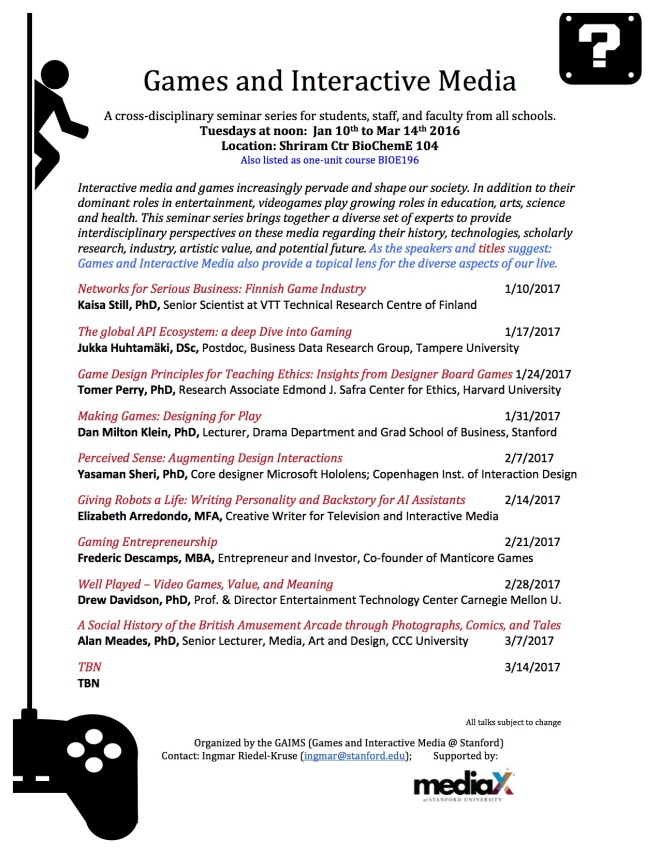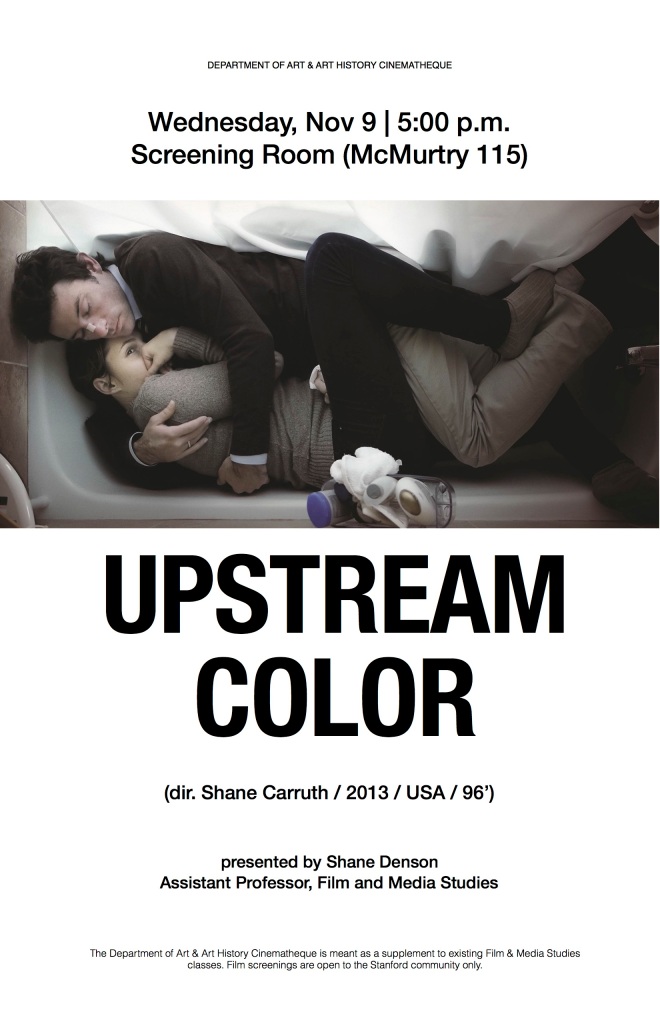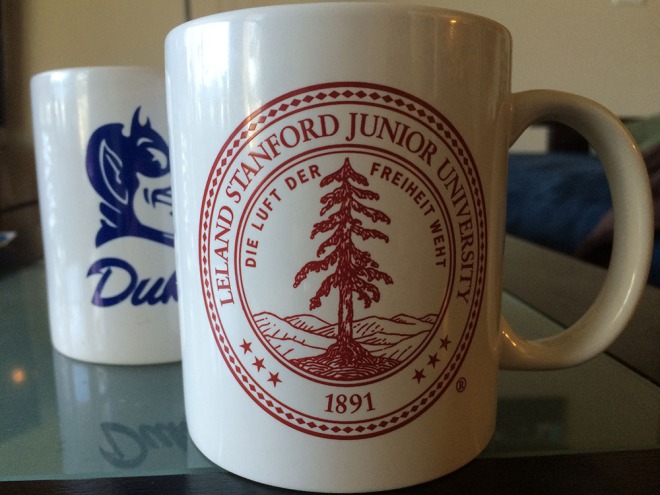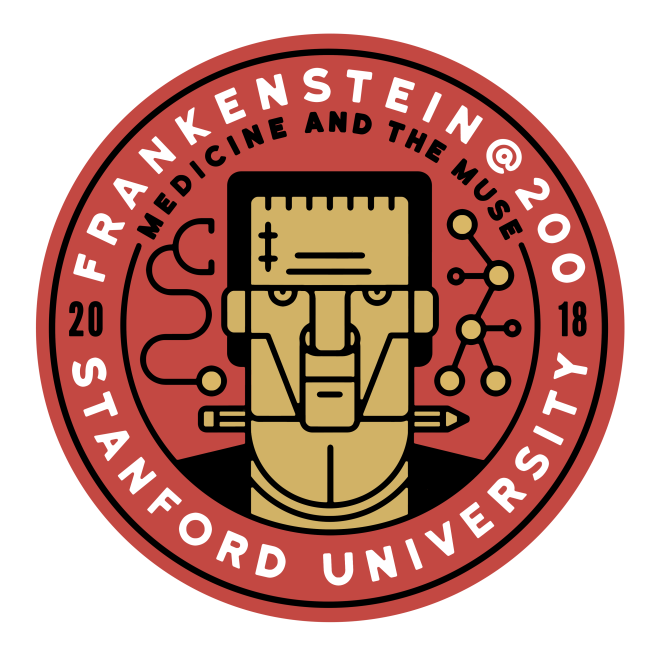Syllabus for my grad seminar on Seriality (spring 2017).
Tag: Stanford
Syllabus: Frankenstein and Film (Stanford University, Spring 2017)
Syllabus for “Frankenstein and Film” (Spring 2017).
Frankenstein@200
Happy to be on the steering committee for Frankenstein@200 — a year-long series of events taking place at Stanford in 2018. I’ll be participating in a number of ways, including talks and several courses related to Frankenstein, among other things. I’ll post details here in due time. Also be sure to check out the project website, which is still under construction, but which is already chock full of announcements and constantly being updated.
The year 2018 marks the 200th anniversary of the publishing of Mary Shelley’s novel Frankenstein. The novel is eerily relevant today as we face ethical dilemmas around appropriate use of stem cells, questions about organ donation and organ harvesting, as well as animal to human transplants. Additionally, the rise of artificial intelligence portends an uncertain future of the boundaries between machines and humans. Frankenstein@200, will be a year-long series of academic courses and programs including a film festival, a play, a lecture series and an international Health Humanities Conference that will examine the numerous moral, scientific, sociological, ethical and spiritual dimensions of the work, and why Dr. Frankenstein and his monster still capture the moral imagination today. This project will be sponsored by the Stanford Medicine & the Muse Program in partnership with the Stanford Humanities Center, the Stanford Arts Institute, the Office of Religious Life, the Vice Provost for Teaching and Learning, Stanford Continuing Studies, the Cantor Arts Center, the Department of Art & Art History, and the Center for Biomedical Ethics.
Games and Interactive Media Series, Winter 2017

The Games and Interactive Media Series (GAIMS) at Stanford University meets every Tuesday at noon. Above, the list of speakers for Winter Quarter 2017.
Syllabus: Post-Cinema (Stanford University, Winter 2017)
Syllabus for the next iteration of my seminar “Post-Cinema” (senior capstone / graduate seminar), Department of Art & Art History, Winter 2017.
Upstream Color (Art & Art History Cinematheque)

At this week’s Art & Art History Cinematheque, I will be presenting Shane Carruth’s Upstream Color (2013). Wednesday, Nov. 9, 2016 at 5pm (McMurtry Building 115).
Video: Digital Seriality: Code & Community in the Super Mario Modding Scene
Above you’ll find the video of my talk, “Digital Seriality: Code & Community in the Super Mario Modding Scene,” which I delivered on September 27, 2016 as part of the Interactive Media & Games Seminar Series at Stanford University.
Here is the abstract for my talk:
Digital Seriality: Code & Community in the Super Mario Modding Scene
Shane Denson
Seriality is a common feature of game franchises, with their various sequels, spin-offs, and other forms of continuation; such serialization informs social processes of community-building among fans, while it also takes place at much lower levels in the repetition and variation that characterizes a series of game levels, for example, or in the modularized and recycled code of game engines. This presentation considers how tools and methods of digital humanities — including “distant reading” and visualization techniques — can shed light on serialization processes in digital games and gaming communities. The vibrant “modding” scene that has arisen around the classic Nintendo game Super Mario Bros. (1985) serves as a case study. Automated “reading” techniques allow us to survey a large collection of fan-based game modifications, while visualization software helps to bridge the gap between code and community, revealing otherwise invisible connections and patterns of seriality.
Syllabus: Introduction to Media (Stanford University, Fall 2016)
Syllabus for my Introduction to Media course, starting Monday, September 26.
Die Luft der Freiheit weht

It is with great pleasure and much excitement that I am able to announce today that, beginning in the Fall 2016 semester, I will take up a new position as Assistant Professor of Art & Art History (teaching in the Film & Media Program) at Stanford University!
